![Mostly Other People Do The Killing : Disasters Vol. 1 [VINYL] (Hot Cup) Mostly Other People Do The Killing : Disasters Vol. 1 [VINYL] (Hot Cup)](https://www.teuthida.com/productImages/misc4/31618.jpg)
Each of the compositions from bassist Moppa Elliot for this trio version of MOPDTK with Ron Stabinsky on piano & synthesizer and Kevin Shea on drums & synthesizer, is named after a Pennsylvania town that has experienced a disaster, including floods, fires, nuclear meltdowns, &c, re-imagining each event through complex and surprisingly lyrical compositions.
In Stock
Quantity in Basket: None
Log In to use our Wish List
Shipping Weight: 24.00 units
EU & UK Customers:
Discogs.com can handle your VAT payments
So please order through Discogs
Sample The Album:
Ron Stabinsky-piano, synthesizer
Moppa Elliott-bass
Kevin Shea-drums, synthesizer
Click an artist name above to see in-stock items for that artist.
Liner notes by "Leonardo Featherweight"
Label: Hot Cup
Catalog ID: 201
Squidco Product Code: 31618
Format: LP
Condition: New
Released: 2022
Country: USA
Packaging: LP
Recorded at Oktaven Studios, at Mount Vernon, New York, on June 18th, 2020, by Ryan Streber.
"Each day, the earth generates numerous destructive and creative events, many of which go by unnoticed by humankind. Volcanoes erupt beneath the sea, glaciers advance and retreat, microorganisms mutate and adapt, yet only when these events disrupt our lives do we call them disasters. A disaster is an anthropological event measured in its human impact, avoidability or inevitability, and our response. Disasters lay bare our values and risk-acceptance: it is a choice to live in a flood zone, to extract natural resources, to rebuild, to make a free-jazz album... Mostly Other People Do the Killing has chosen to do just that: make audible the experience of disaster.
The partial meltdown of reactor number 2 at Three Mile Island in 1979, immortalized in the film masterpiece X-Men Origins: Wolverine by Gavin Hood, looms large in the high-cultural fabric of Pennsylvania. Bassist and composer Moppa Elliott's nuclear re-engineering of the bugaloo is audible in the contrapuntal melodic lines and finely honed electronic sounds, anticipating a future of [nuclear] fusion. Rather than explain the disaster, Elliott's composition imagines the event backwards, starting with the chaos and high-energy radiation of a nuclear meltdown and slowly achieves containment, as in the "bombs-in-reverse" sequence of Kurt Vonnegut's Slaughterhouse-5.
The epic quest for fossil fuels and disregard of human safety in order to procure them rarely has had more dire results than the total catastrophe of the Knox Mine Disaster in Exeter, PA, in 1959. Just days before Miles Davis would record his masterpiece, Kind of Blue, in New York City, miners deep beneath the Wyoming Valley edged too close to the bed of the mighty Susquehanna River and blasted a hole in it, not only flooding the mines, but ultimately ending anthracite coal mining in the region. As the river water rushed into the mine, forming a giant whirlpool, workers resorted to dumping entire train cars into the void in a futile attempt to simulate a bathtub plug. The absurdity and tragedy of this underground Icarus event leap to melodic life in Elliott's tune -- a film-noir dirge evoking the search for survivors in the subterranean darkness and murk before fading to black.
The violent meeting of two oil tankers in the waters of the Delaware river near Marcus Hook caused a Cleveland-esque fire on the surface of the bay, released thousands of barrels of fuel into the water, and engulfed many innocent bystanders. The submarine consequences of just such a toxic spill have been previously explored by Talibam! in their seminal opera, Discover AtlantASS, providing drummer Kevin Shea a second opportunity to explore this crude theme. Elliott first states the languid melody, evocative of the laggard progress of the great ships, before giving way to a hymn-like requiem for the oil industry itself and drawing parallels to other disastrous, interpersonal collisions and conflagrations.
Wilkes-Barre, the childhood home of pianist Ron Stabinsky, was dealt a tragic double-blow by fate. A few years after the mine flood in nearby Exeter, hurricane Agnes brought a second, above-ground deluge to further decimate the city. The floodwaters, after breaching the levee system and completely submerging the city, left high-water marks on buildings fifteen feet up that remain visible decades later. The members of MOPDtK achieve similarly high marks for their rollicking performance of Elliott's complex composition. Like a cloudburst, the music begins in media res, flows through several thematic sections evoking the trauma of the event, and ends with Stabinsky's plaintive cries as he yearns to return to his childhood innocence.
In the funeral march, "Boyertown," we can imagine the procession of mourners returning to the Rhodes Opera House where a fire consumed so many members of their community in 1908. An audience expecting to be awed by a performance including a stereopticon found itself trapped when the lighting equipment ignited and emergency exits were not accessible. The fuel for MOPDtK's burning tune comes from Elliott's arco bass melody and the orchestral percussion orchestrated by Shea evoking not only Chopin, Berlioz, and Waits, but the jazz funeral parades of New Orleans, habanera rhythms of Cuba, and the ponderous acceptance of their fate by the Pennsylvania townspeople.
The ongoing mine fire smoldering beneath Centralia, PA, since 1962 has served as the basis of numerous films and video games, the artistic media of our century. The five remaining residents of the town, unfazed by the inferno raging beneath their feet, live amidst the pungent, acrid fumes that constantly seep from the ground. Rather than dwell in the Alighierian aspects of the fire, Elliott's "Centralia" is a celebration of escape, as though the trio were triumphantly leading the evacuation from a collapsing Appalachian mining town while fire, brimstone, and economic despair rain down around them.
Disasters often leave loneliness and isolation in their wake, evoked here by the cosmic sound-scape created by Shea and Stabinsky while Elliott serves as a lone voice calling out in the darkness. Johnstown, PA, has been destroyed by flood three times in its history, and in the face of all reason, rationality, and learning, residents still return, drawn by its natural beauty and the possibility that this time might turn out differently. With an average of 44 years between the previous floods (the last occurrence took place in 1977) is the city is due for another?
We expect coal and oil to burn, but when our tap water turns out to be flammable, there has been a terrifying paradigm shift. The hydraulic fracturing or "fracking" in and around Dimock, PA, created just that situation, documented in the film Gasland, in which a homeowner lights the water coming out of a kitchen faucet. Like hydrocarbons suspended in solution just waiting for a spark, the members of MOPDtK explode and burn through a series of melodies so familiar that they may have been present in the bedrock of music for eons. The half-time section that ends this composition clearly bids the audience farewell with the hope that you have enjoyed Mostly Other People Do the Killing's disastrous new album!"-Leonardo Featherweight, May 2021
Liner notes by "Leonardo Featherweight"
Artist Biographies
• Show Bio for Ron Stabinsky "Ron Stabinsky recently released his debut album, Free for One, the culmination of more than a decade of evolving his improvised solo language. In addition to continuing to pursue his ongoing interest in solo piano improvisation, he enjoys working on music in a stylistically diverse array of situations throughout the United States and Europe with many other musicians and ensembles, including free-improvising saxophonist Jack Wright, bass trombone virtuoso David Taylor, Meat Puppets bassist Cris Kirkwood, and NEA Jazz Master David Liebman. Recent festival appearances include Newport Jazz Festival, North Sea Jazz Festival (Netherlands), Moers Festival (Germany), Jazzfestival Saalfelden (Austria), Outreach Festival (Austria), and Jazz and More Festival Sibiu (Romania). He is currently a regular member of the band Mostly Other People Do the Killing, the new music ensemble Relâche, the Charles Evans Quartet, and the Peter Evans Quintet." ^ Hide Bio for Ron Stabinsky • Show Bio for Moppa Elliott "A short biography from the artist: I was born on September 13, 1978, the first son of David and Carolyn Elliott in Scranton, Pa. Incidentally, they named me Matthew Thomas Elliott, not Moppa. My parents are both college instructors and intense music lovers, so I was able to hear a lot of music growing up. After a brief introduction to the piano, I started to play the trombone in the sixth grade, and after deciding a few years later that I wanted to also play an instrument with strings, I was given an electric bass. When I was about 17, I fixed up my father's old acoustic bass in order to audition for a summer program. I then began to study the bass seriously with Pocono resident Tony Marino. In the fall of 1997, I enrolled in both Oberlin College and the Oberlin Conservatory of Music majoring in biology and Jazz bass performance in Oberlin's double-degree program. While there I was able to record my first CD, Pinpoint and to gain some experience playing in Cleveland OH for about 3 years. I was also fortunate enough to teach at the Pennsylvania Governor's School for the Arts for four summers. I finished school in the winter of 2001, and moved to New York City the following summer. Here in New York, I have been able to play and record with some great musicians and to continue teaching at St. Mary's High School." ^ Hide Bio for Moppa Elliott • Show Bio for Kevin Shea "Kevin Shea is valued as being a vital and original artist in the contemporary music scene. Shea's originality is manifested not only by his personal approach to his instrument, but also throughout his constant search for new musical horizons unifying all the bands he has been involved in despite the parameters set for musicians by genre definition, or by historical icons. The plurality of rigorous artistic aspirations and creative engagement that distinguish the discography of Kevin Shea are not the product of chance or merely taking advantage of opportunities -- but the result of labor, strong convictions, and a strong conceptual support -- a deliberate search for transitional territories away from the dogmas of boring and unnecessary conventions. Shea's artistic interests are rooted in reevaluating what a band/music, musician/performer, artist and audience can and should be. Splitting the difference between passion and song, Shea plays multi-dimensional utopian sound in which opposing musical forces integrate to form a new sustainable recipe for sound and social implication. Remaining devoted to his belief that the application of sonic diversity is paramount to the appreciation of human diversity, Shea's ultimate goal has been to wed disparate ideologies through proficiency, controversy, inquiry, and compassion -- an approach perpetuating audiences, listeners, and sometimes fellow band members, to face, question, define, and attempt to defend their own level of tolerance and compassion head-on, no-holds-barred. Through this carefully planned direct method in the round, Shea's sonic investigations emphatically traverse the mobius strip highway of refurbished canticles, perpetually climaxing between Sadean semelparity and Platonic resurrection. At the heart of Shea's dialectical core, unabashed artifacts of rhythmic iconoclasm conjoin with anthemic melody gestures and modern memory loss to create a vital force that gives us bittersweet contemplation and empathy. As a youth, Shea moved throughout the States many times, transforming any of his formal expectations into a joyous foundation of constant flux. He learned that intuition and customs had to be constantly re-evaluated and negotiated rather than held as sacred. This process of questioning is central to Shea's music. To him, sound is a result of a broader process rather than formulas tied to notions of predictable emotional response. Shea sees sound and music, not as a prize, but a simple aspect of banal daily life. Kevin Shea has over 25 years of experience as a professional drummer, composer and performer. He has recorded on over 120 albums in a mish-mash of contexts and has performed in over 40 countries. His training started in public elementary school and continued steadily through his college years at Berklee College of Music." ^ Hide Bio for Kevin Shea
Have a better biography or biography source? Please Contact Us so that we can update this biography.
11/18/2024
Have a better biography or biography source? Please Contact Us so that we can update this biography.
11/18/2024
Have a better biography or biography source? Please Contact Us so that we can update this biography.
Track Listing:
SIDE A
1. Three Mile Island 03:24
2. Exeter 04:27
3. Marcus Hook 05:22
4. Wilkes-Barre 05:26
SIDE B
1. Centralia 05:34
2. Johnstown 04:37
3. Boyertown 04:48
4. Dimock 05:05
Vinyl Recordings
Improvised Music
Jazz
Free Improvisation
NY Downtown & Metropolitan Jazz/Improv
Trio Recordings
Piano Trio (Piano Bass Drums)
Melodic and Lyrical Jazz
Jazz & Improvisation Based on Compositions
Friends of Squid
Search for other titles on the label:
Hot Cup.


![Mostly Other People Do The Killing : Disasters Vol. 1 [VINYL] (Hot Cup) Mostly Other People Do The Killing : Disasters Vol. 1 [VINYL] (Hot Cup)](https://www.teuthida.com/productImages/full/31618.Full.jpg)
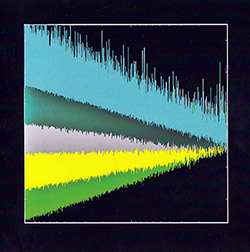
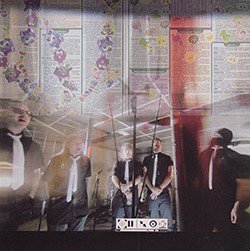
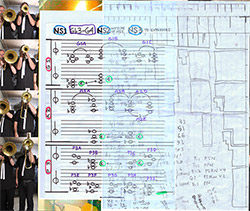





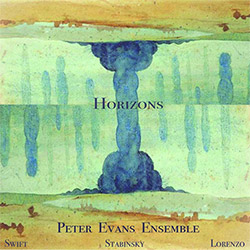


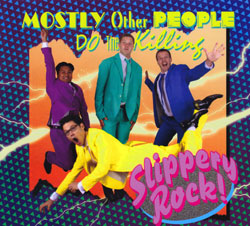
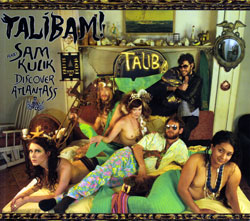
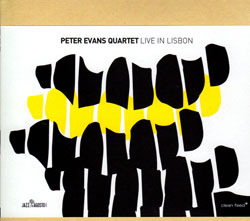
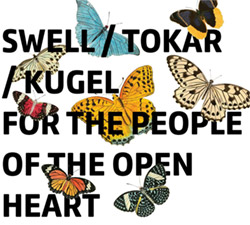
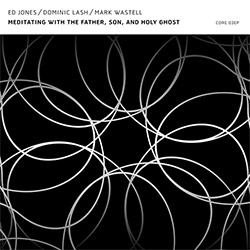
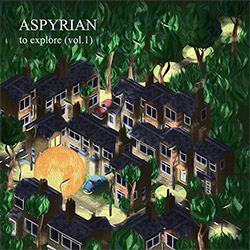

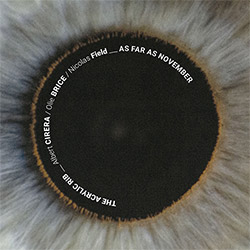
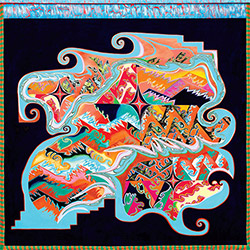
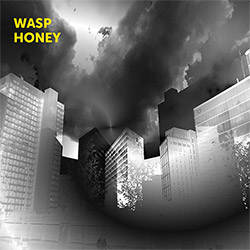

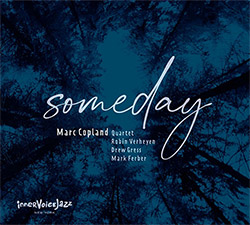
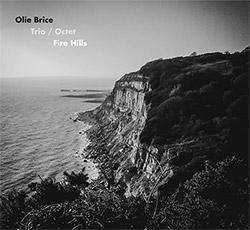














![Barker / Parker / Irabagon: Bakunawa [VINYL]](https://www.teuthida.com/productImages/misc4/35533.jpg)
![Blaser, Samuel / Marc Ducret / Peter Bruun: Dark Was The Night, Cold Was The Ground [VINYL 10-inch]](https://www.teuthida.com/productImages/misc4/35492.jpg)










![Warren, Kenny (Warren / Hoffman / Ellman): Sweet World [VINYL]](https://www.teuthida.com/productImages/misc4/35451.jpg)


![Blake, Ran / Dave Knife Fabris: Live Amsterdam 2006, First Visit [CD + POSTCARDS]](https://www.teuthida.com/productImages/misc4/35275.jpg)
![Sanna, Claudio: Compositori Sardi Contemporanei II [2 CDs]](https://www.teuthida.com/productImages/misc4/35317.jpg)












![Nevai, Nandor: <<The PRICE of FRONTIER>> Book 1: FULK [BOOK + 4 CDs]](https://www.teuthida.com/productImages/misc4/35464.jpg)
![Nevai, Nandor: <<The PRICE of FRONTIER>> Book 2: MARTIAL [BOOK + 4 CDs]](https://www.teuthida.com/productImages/misc4/35465.jpg)
![Nevai, Nandor: <<The PRICE of FRONTIER>> Book 3: JASSOM [BOOK + 4 CDs]](https://www.teuthida.com/productImages/misc4/35466.jpg)
![Nevai, Nandor: <<The PRICE of FRONTIER>> Book 4: HARD-WON [BOOK + 4 CDs]](https://www.teuthida.com/productImages/misc4/35467.jpg)






![DNS: Taking Big Bites Of The Khandas Three Cafes Deep [2 CDs]](https://www.teuthida.com/productImages/misc4/35334.jpg)




![Cleaver, Gerald: The Process [VINYL]](https://www.teuthida.com/productImages/misc4/34966.jpg)




![Alva Noto: HYbr:ID II [VINYL 2 LPs]](https://www.teuthida.com/productImages/misc4/35201.jpg)

![Baron, Derek / Luke Martin: Distinct and Concealed [CASSETTE + DOWNLOAD]](https://www.teuthida.com/productImages/misc4/35079.jpg)

![Lyle, Erica Dawn : Colonial Motels [CASSETTE + DOWNLOAD]](https://www.teuthida.com/productImages/misc4/35080.jpg)







![Alva Noto: HYbr:ID III [VINYL 2 LPs]](https://www.teuthida.com/productImages/misc4/35011.jpg)
![Kubisch, Christina / Trondheim Voices: Stromsanger 2022 For Six Voices And Electromagnetic Waves [VINYL]](https://www.teuthida.com/productImages/misc4/34628.jpg)








![Zurria, Manuel: Fame di Vento [3 CDs]](https://www.teuthida.com/productImages/misc4/35167.jpg)

![Granberg, Magnus / Nattens Inbrott / Skogen: Holde Traume, Kehret Wieder! [2 CDs]](https://www.teuthida.com/productImages/misc4/35038.jpg)
![Frey, Jurg: Outermost Melodie [2 CDs]](https://www.teuthida.com/productImages/misc4/35039.jpg)

![Pavone, Jessica: Reverse Bloom [VINYL]](https://www.teuthida.com/productImages/misc4/34895.jpg)




![Modney (Modney / Wooley / Gentile / Roberts / Pluta / Symthe / ...): Ascending Primes [2 CDs]](https://www.teuthida.com/productImages/misc4/34852.jpg)








![Elephant9 with Terje Rypdal: Catching Fire [VINYL 2 LPs]](https://www.teuthida.com/productImages/misc4/35355.jpg)
![Deerlady (Obomsawin, Mali / Magdalena Abrego): Greatest Hits [VINYL]](https://www.teuthida.com/productImages/misc4/34876.jpg)




![Haino, Keiji: Black Blues [2 CDs]](https://www.teuthida.com/productImages/misc4/35109.jpg)



![Surplus 1980: Illusion of Consistency [CD]](https://www.teuthida.com/productImages/misc4/35069.jpg)
![Staiano, Moe: Away Towards the Light [VINYL + DOWNLOAD]](https://www.teuthida.com/productImages/misc4/35037.jpg)




![Caveira (Gomes / Sousa / Abras / Ferrandini): Ficar Vivo [VINYL]](https://www.teuthida.com/productImages/misc4/34643.jpg)
![Gregg, J. J. / David Van Auken: Lunar Prairie [CD w/ DOWNLOAD]](https://www.teuthida.com/productImages/misc4/34611.jpg)

![Coultrain: Mundus [VINYL]](https://www.teuthida.com/productImages/misc4/32439.jpg)
![Mattin: Songbook #6 [VINYL]](https://www.teuthida.com/productImages/misc4/27317.jpg)
![Punkappella: Wake Up [7-inch VINYL]](https://www.teuthida.com/productImages/misc4/17519.jpg)
![Residents, The: WARNING: UNiNC.: Live And Experimental Recordings 1971-1972 [VINYL 2 LPs]](https://www.teuthida.com/productImages/misc4/31521.jpg)
![Coultrain: Phantasmagoria [VINYL]](https://www.teuthida.com/productImages/misc4/30142.jpg)
![Lennon, Sean Ono: Asterisms [VINYL]](https://www.teuthida.com/productImages/misc4/34517.jpg)

![Rotem Geffen: The Night Is The Night [VINYL]](https://www.teuthida.com/productImages/misc4/34631.jpg)
![Coley, Byron: Dating Tips for Touring Bands [VINYL]](https://www.teuthida.com/productImages/misc4/17906.jpg)

![Lost Kisses: My Life is Sad & Funny [DVD]](https://www.teuthida.com/productImages/misc4/lostKissesDVD.jpg)